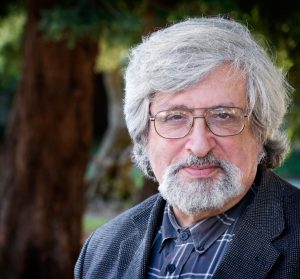46th INTERNATIONAL BALTIC MUSICOLOGICAL CONFERENCE: CULTURAL CHANGE AND MUSIC CRITICISM
2018 October 23–26
LMTA 1st Building: Juozas Karosas Hall (Gedimino Ave. 42, Vilnius)
46th INTERNATIONAL BALTIC MUSICOLOGICAL CONFERENCE: CULTURAL CHANGE AND MUSIC CRITICISM

Over fifty years ago Baltic musicological conferences were established as a cultural space for musical exchange, professional collaboration, and openness to the wider international networking. In 2018, the three neighbouring countries – Lithuania, Latvia and Estonia – celebrate the centennial of their modern statehood. Inspired by the key reference points throughout the century of changes, the 46th international Baltic musicological conference will focus on music criticism in its relationship to cultural transformations. The conference seeks to encourage discussion about the contribution of critical discourse on music to the 20th–21st c. cultural and social processes.
In the 20th–21st centuries, music criticism played an important role in the articulation and critical reflection on rapid changes of culture and their relationship to political history, social and economical transformation, development of technologies and media. Shifts in traditions and canons, variety of new music phenomena, cultural hybridization, expansion of musical consumption and globalization of music industry – orientations of music criticism and understanding of its function were influenced to a great extent by the changing worlds of music. Engaged as an instrument of cultural self-awareness, music criticism itself contributes to the political, social and cultural changes. As Jacques Attali well writes, music “makes audible the new world that will gradually become visible, that will impose itself and regulate the order of things; it is not only the image of things, but the transcending of the everyday, the herald of the future” (Attali 1985) – this attitude can be addressed not only to musical expression, but also to the critical discourse on music. In the context of “cultural omnivorousness” (Peterson 1996) and general cultural polyglotism (Eco 1990), music criticism seeks to reconsider the typologies of ideas and values employed for assessment of musical practice and to reflect their effectiveness within local and global cultural spaces.
Keynote speakers:
– Richard Taruskin (University of California, Berkeley)
– Daniel Leech-Wilkinson (King`s College University London)
– Andreas Engström (Kontraklang, Berlin)
– Olga Manulkina (St Petersburg N. Rimsky-Korsakov State Conservatory)
Official language of the conference is English.
Programme Committee:
– Rūta Stanevičiūtė (Lithuanian Academy of Music and Theatre) – chair
– Andreas Engström (Kontraklang, Berlin)
– Marina Frolova-Walker (Cambridge University)
– Jūratė Katinaitė (Lithuanian National Radio)
– Jānis Kudiņš (Jāzeps Vītols Latvian Academy of Music)
– Olga Manulkina (St Petersburg N. Rimsky-Korsakov State Conservatory)
– Lina Navickaitė-Martinelli (Lithuanian Academy of Music and Theatre)
– Richard Taruskin (University of California, Berkeley)
Organisers: Lithuanian Composers’ Union, Lithuanian Academy of Music and Theatre. Conference is supported by Lithuanian Council for Culture.
